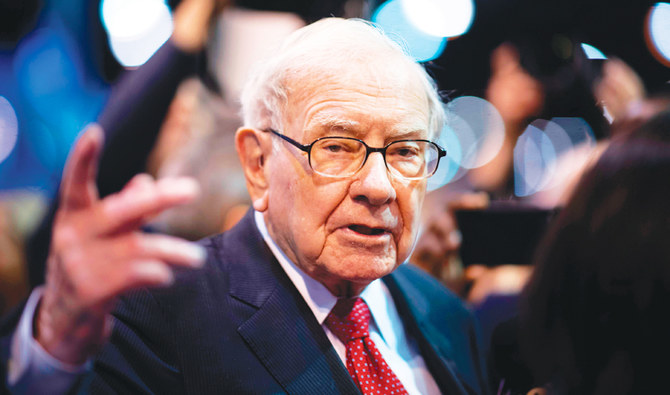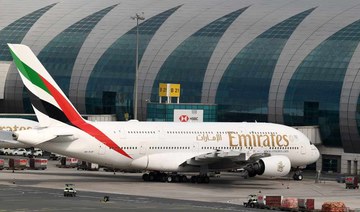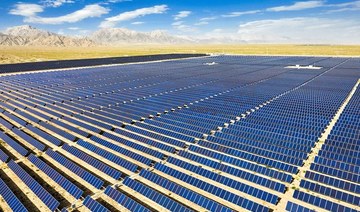NEW YROK: Billionaire investor Warren Buffett on Saturday said the US’ capacity to withstand crises provides a silver lining as it combats the coronavirus, even as he acknowledged that the global pandemic could significantly damage the economy and his investments.
During the annual meeting of Berkshire Hathaway Inc., Buffett said his conglomerate has taken many steps responding to the pandemic, including providing cash to struggling operating units, and throwing in the towel on a multi-billion-dollar bet on US airlines.
Buffett also said he remains keen on making a big acquisition, which he has not done since 2016, but has not provided financial support to companies as he did during the 2008 financial crisis because he saw nothing attractive enough, even after the recent bear market.
The 89-year-old opened the meeting in Omaha, Nebraska with remarks to soothe anxious investors, urging them to stay committed to stocks despite this year’s bear market, even if the pandemic gets a second wind late this year.
Illustrating his remarks with dozens of plain black-and-white slides, Buffett called dealing with the pandemic “quite an experiment” that had an “extraordinarily wide” range of possible economic outcomes.
But he said Americans have persevered and prospered through such crises as the Civil War in the 1860s, the influenza pandemic a century ago and the Great Depression. American “magic” prevailed before and would do again, he said.
“Nothing can stop America when you get right down to it,” Buffett said. “I will bet on America the rest of my life.”
The meeting was held virtually for the first time because of the pandemic, without shareholders in attendance, and streamed by Yahoo Finance.
Buffett and Vice Chairman Greg Abel, 57, answered shareholder questions posed by a reporter.
Abel has day-to-day oversight of Berkshire’s non-insurance businesses, and is considered by many analysts and investors a top candidate to eventually succeed Buffett as chief executive.
The meeting began several hours after Berkshire reported a record $49.75 billion first-quarter net loss, reflecting huge unrealized losses on common stock holdings such as Bank of America Corp. and Apple Inc. during the market meltdown.
While quarterly operating profit rose 6 percent, several larger businesses including the BNSF railroad posted declines, hurt by the negative impact of COVID-19.
Buffett said operating earnings will, through at least this year, be “considerably less” than they would have been had the pandemic not occurred.
HIGHLIGHTS
• Warren Buffett says his conglomerate has taken many steps responding to the pandemic, including providing cash to struggling operating units, and throwing in the towel on a multi-billion-dollar bet on US airlines.
• Nothing can stop America when you get right down to it, I will bet on America the rest of my life, Buffett said.
Berkshire’s cash stake ended the quarter at a record $137.3 billion, though Buffett said “we’re willing to do something very big,” perhaps a $30 billion to $50 billion transaction.
Buffett said he “made a mistake” investing in the sector, which the pandemic has changed “in a very major way” with no fault of the airlines, leaving limited upside for investors. “It is basically that we shut off air travel in this country,” he said.
The meeting was devoid of the surrounding three-day weekend of dining, shopping and other celebratory events that annually draw tens of thousands of people to Omaha for what Buffett calls “Woodstock for Capitalists.”
Abel stood in for longtime Vice Chairman Charlie Munger, 96, who normally joins Buffett to answer shareholder questions.
Buffett said Munger was in “fine shape” and “good health,” and looked forward to attending Berkshire’s 2021 annual meeting.























